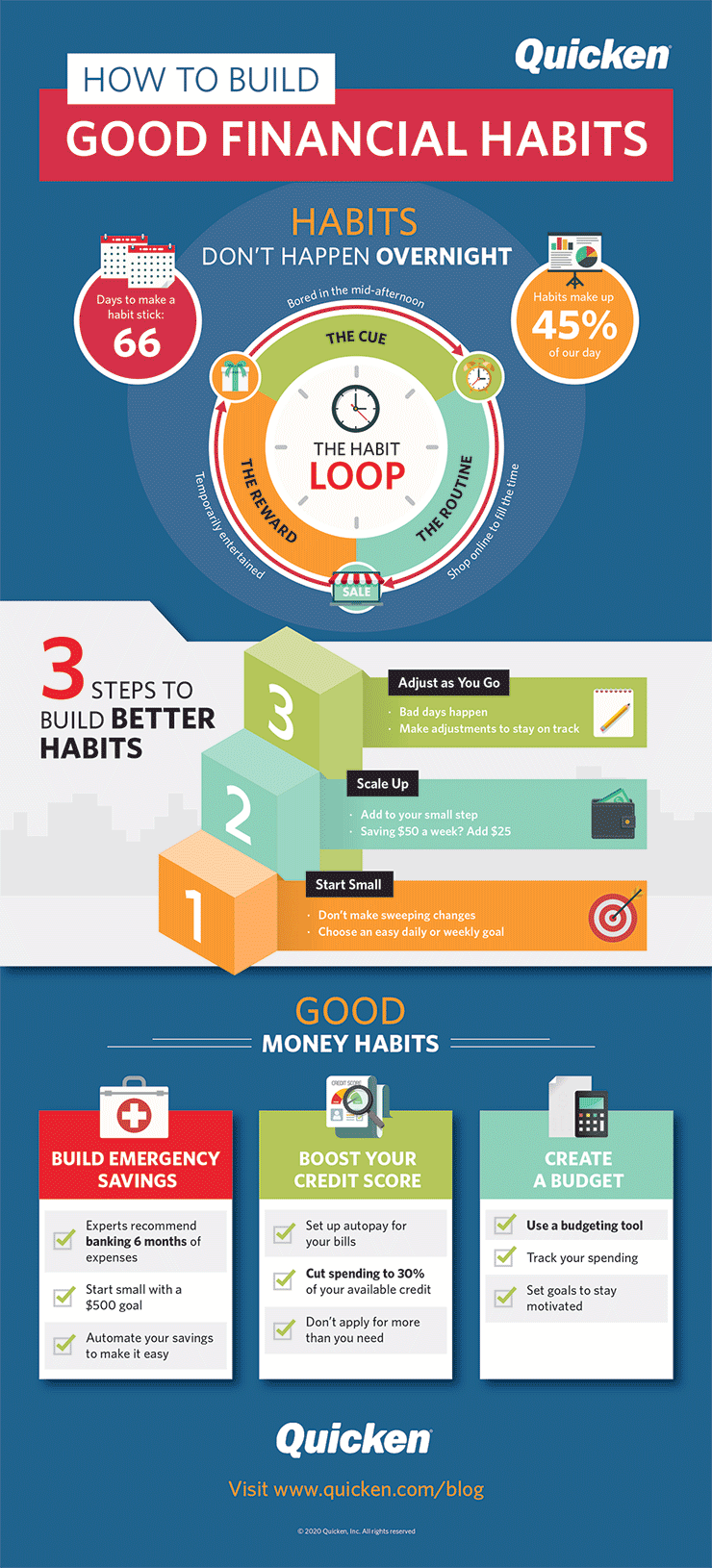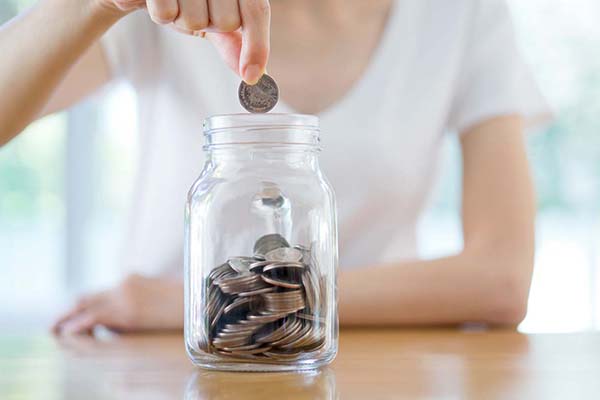How to Build Good Financial Habits
While most states are lifting portions of their shelter-in-place guidelines, the world as we know it won’t return to normal for the time being. We’ll still likely be spending most of our time indoors. But that may not be a bad thing.
Spending more time at home gives us room to reflect, focus on self-care (especially now, when we need all the time we can get to decompress from the stress of the outside world), and retool our priorities. We can also use some of this downtime to change the way we handle our personal finances.
Most experts agree: the recession is already here. A record 20.5 million job losses were reported in April, pushing the nation to a 14.7% unemployment rate. Despite the stock market showing some rebounds, a few analysts are predicting the COVID-19 crisis could usher in the worst recession since the Great Depression.
Will that actually come to pass? It depends. Recessions are hard to predict, even without a pandemic sweeping the nation. What we can control though, is how we manage our own money. Even if you’ve lost your job or your retirement is taking a hit, you can still take this time to build good money habits that will help you outlast the recession.
Building good money habits takes time, but it is completely doable. Here’s how to make the changes you want to see in your life:

Sources:
https://onlinelibrary.wiley.com/doi/abs/10.1002/ejsp.674
http://www.richardwiseman.com/quirkology/new/USA/Experiment_resolution.shtml
https://web.archive.org/web/20110526144503/http://dornsife.usc.edu/wendywood/research/documents/Neal.Wood.Quinn.2006.pdf
Habits Don’t Happen Overnight
We really are creatures of habit. Whether we’re conscious of it or not, a good chunk of our daily lives comes from routine. In fact, a study from Duke University found that up to 45% of our everyday behaviors happen in the same place nearly every day.
It is part of what makes breaking a bad habit so difficult. If, for example, you’re used to late night snacking in front of Netflix, just turning on the TV can make you feel hungry. Used as a force for good that same repetition can help you build better habits—but it doesn’t happen overnight. While 21 days is widely touted as the ideal timeframe for habit building, a study published in the European Journal of Social Psychology found it really took 66 days on average to make a new habit stick.
The Habit Loop
When we think of a habit, we usually picture the action, such as taking the trash out Sunday after dinner or brushing our teeth every morning. But behind the scenes, our habits actually work on a loop system in our mind.
First, there is the “cue,” which triggers our brains to start the “routine” or the action part of a habit. Once we actually complete the task, our brains need a form of “reward” to complete the loop and engrain the habit. Once this happens repeatedly, we no longer need to use much brain power to work through the loop, it becomes automatic and a habit is born.
Say, for example, you often get bored browsing Netflix on lazy Sunday afternoons. The location (your couch on a Sunday) and the emotion (boredom) act as a trigger. Your brain recalls an action you usually do at this time, say mindless online shopping. Virtual browsing and buying gives you temporary joy, which in turn, rewards your brain and further engrains the shopping habit. Before you know it, you’re automatically turning to those retail apps every weekend.
3 Steps to Build Better Habits
Most of the time, our life changes fail because we take on too much and expect instant results. Take resolutions, for example. Every Jan. 1 like clockwork, we resolve to start keeping a perfect budget, save $10,000, or stop impulsive spending overnight. Is it really any wonder that 88% of our resolutions fail?
The key to good habit building is to set reasonable goals and create an actionable plan to get there. Try taking these three steps:
- Step 1: Start small — Create a small daily or weekly goal you can achieve to help build your habit.
- Step 2: Scale up — Once you’re in the groove, bump up your goal.
- Step 3: Adjust as you go — One bad day won’t blow all your hard work out the window. Regularly take time to reflect and realign with your goals to keep yourself on track.
Build Good Money Habits
Like any habit, building good money routines takes small steps overtime. Say, for example, you’ve never been a good saver. That’s OK, you can change that now. While experts recommend having six months’ worth of expenses saved, if you aim that high at once, you’ll burn out before saving is really a habit. Instead, start with a small $500 (or even $100) goal. Commit to moving $50 of your paycheck into savings every payday. Once you’ve got the hang of that, bump it up to $75 per paycheck. Not only will you reach your goal over time, but you’ll turn saving into a habit. Your brain will start to recognize your paycheck as the cue, the cue will tell you to save right away, and you’ll get a sense of reward from seeing the balance grow.
Remember, habits aren’t automatic. If you fall off the wagon a time or two, just get back up again. No matter what you want to accomplish with your money, repetition and commitment can turn your seemingly small financial goals into lifelong changes.
Quicken has made the material on this blog available for informational purposes only. Use of this website constitutes agreement to our Terms of Use and Privacy Policy. Quicken does not offer advisory or brokerage services, does not recommend the purchase or sale of any particular securities or other investments, and does not offer tax advice. For any such advice, please consult a professional.



